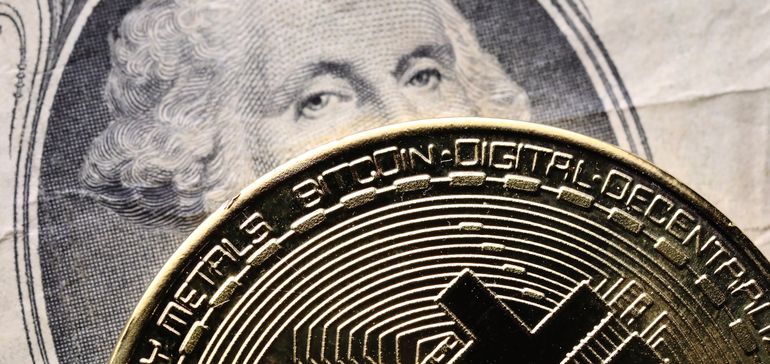Banking regulators issued a new warning to financial institutions Tuesday about the risks they’re exposed to when dabbling in crypto.
The warning follows a year of volatility in the price of Bitcoin and other cryptocurrencies and comes less than two months after the collapse of the FTX exchange, which lost more than $8 billion of customers’ money.
“The events of the past year have been marked by significant volatility and the exposure of vulnerabilities in the crypto-asset sector,” the Federal Reserve, Federal Deposit Insurance Corp. (FDIC) and the Office of the Comptroller of the Currency (OCC) said in a joint statement Tuesday. “These events highlight a number of key risks associated with crypto-assets and crypto-asset sector participants that banking organizations should be aware of[.]”
A list of risks for banks working with crypto, according to regulators, include “risk of fraud and scams among crypto-asset sector participants” and “legal uncertainties related to custody practices, redemptions, and ownership rights.”
Regulators included “inaccurate or misleading representations and disclosures by crypto-asset companies, including misrepresentations regarding federal deposit insurance,” which now-bankrupt exchanges FTX and Voyager Digital fell under fire for last summer.
Regulators also cited the “susceptibility of stablecoins to run risk,” as was the case with the collapse of the Terra/Luna stablecoins which depegged from the U.S. dollar last spring.
“It is important that risks related to the crypto-asset sector that cannot be mitigated or controlled do not migrate to the banking system,” the regulators said Tuesday. “Given the significant risks highlighted by recent failures of several large crypto-asset companies, the agencies continue to take a careful and cautious approach related to current or proposed crypto-asset-related activities and exposures at each banking organization.”
While the agencies did not lay out fresh rules in the warning, they indicated they’re assessing how — and even if — banks can safely conduct crypto-related activities while maintaining compliance with anti-money laundering and consumer protection laws.
“Based on the agencies’ current understanding and experience to date, the agencies believe that issuing or holding as principal crypto-assets that are issued, stored, or transferred on an open, public, and/or decentralized network, or similar system is highly likely to be inconsistent with safe and sound banking practices,” the regulators said.
“Further, the agencies have significant safety and soundness concerns with business models that are concentrated in crypto-asset-related activities or have concentrated exposures to the crypto-asset sector,” they said.



